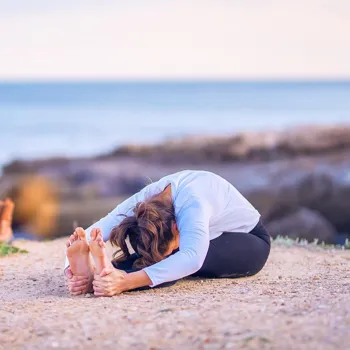Unlock Your Stress-Free Life with Exercise! Dive into the power of endorphins and sleep benefits. Read more!
In today’s fast-paced world, stress has become as common as chai in the morning. From deadlines
at the office to managing household responsibilities, life throws curveballs at us constantly. While a little stress can be a motivator, chronic stress can wreak havoc on your physical and mental health.

But here’s the good news: exercise is a powerful and readily available tool to combat stress and regain control of your well-being.
Experts in the field of health and wellness are increasingly emphasizing the importance of incorporating regular physical activity into our daily routines as a potent stress management technique.
Exercise boosts mood, manages stress, regulates cortisol, and promotes overall health
Exercise isn’t just about building muscles or losing weight; it’s a holistic approach to improving your overall health, including your ability to handle stress effectively. When you engage in physical activity, your body releases endorphins, which are natural mood boosters.

These endorphins interact with receptors in your brain, creating feelings of happiness and reducing the perception of pain. This is why that post-workout feeling is often described as a “natural high.” Moreover, exercise helps to regulate cortisol, the primary stress hormone.
While cortisol is essential for responding to danger, chronic elevation of cortisol levels can lead to various health problems, including anxiety, depression, and sleep disturbances. Regular exercise helps to keep cortisol levels in check, preventing it from spiralling out of control.
Think of it as your body’s natural stress regulator, keeping things balanced and preventing them from overwhelming you. It is also important to remember that consistency is key for managing stress.
Exercise improves sleep quality, reduces stress, and boosts mood
Furthermore, exercise can improve your sleep quality. Stress often interferes with sleep, leading to a vicious cycle of stress and insomnia. Physical activity can help you fall asleep faster, sleep more deeply, and wake up feeling refreshed.

This is because exercise helps to regulate your body’s natural sleep-wake cycle, making it easier to drift off to slumber. A good night’s sleep, in turn, makes you more resilient to stress and better equipped to handle challenges during the day.
In addition to the physiological benefits, exercise provides a mental escape from the stressors of daily life. Whether you’re jogging in the park, practicing yoga, or dancing to your favourite music, exercise allows you to focus on the present moment and forget about your worries.
This mental break can be incredibly valuable in reducing stress and improving your overall mood. It’s like hitting the reset button on your mind, allowing you to return to your tasks with a clearer and more focused perspective.
Exercise for stress relief is accessible to all, no need for fancy gear or gym
The best part about using exercise as a stress management tool is that it’s accessible to everyone, regardless of age, fitness level, or budget. You don’t need a fancy gym membership or expensive equipment to reap the benefits of exercise.
A simple walk in the park, a few minutes of stretching, or a quick dance session in your living room can make a significant difference. The key is to find activities that you enjoy and that fit into your lifestyle. This could be anything from gardening to swimming to cycling.
The more you enjoy the activity, the more likely you are to stick with it, making it a sustainable part of your stress management routine.
Remember, the goal is not to become a fitness fanatic, but to incorporate regular physical activity into your life in a way that feels good and helps you to manage stress effectively. Start slow and gradually increase the intensity and duration of your workouts as you get fitter.
Join group exercise for motivation, support, and connections
Consider joining a group exercise class or finding a workout buddy. Exercising with others can provide motivation, social support, and accountability. It’s also a great way to meet new people and build connections, which can further reduce stress and improve your overall well-being.
A support system can be invaluable when you are trying to make lifestyle changes, providing encouragement and helping you to stay on track. If you’re feeling overwhelmed or unsure where to start, consult with a doctor or a certified fitness professional.
They can help you to develop a safe and effective exercise plan tailored to your individual needs and goals. They can also provide guidance on how to modify exercises if you have any physical limitations or health conditions. Don't consider exercise as a chore.
Instead, look at it as an investment in your physical and mental health, a way to take care of yourself and build resilience against stress.
Exercise is key for physical and mental well-being
So, the next time you’re feeling stressed, don’t reach for that extra cup of chai or scroll endlessly through social media. Instead, lace up your shoes and get moving. Even a short burst of exercise can make a world of difference.
Remember, exercise is not just about physical fitness; it’s about mental well-being and is a powerful tool to manage life’s daily stresses. Make it a part of your daily routine and experience the positive impact it can have on your overall health.
You’ll be surprised at how much better you feel, both physically and mentally.
Exercise combats stress by releasing endorphins, boosting mood
Stress is now common, and exercise is a great way of dealing wiht it. Exercise helps release endorphins, these are mood boosters. Consistent exercise can help one regualte mood and manage long term stress.

Exercise boosts sleep quality and mental well-being
Exercise improves sleep quality by regulating our body clock. Good sleep helps us deal with daily challenges with ease. Furthermore, exercise is a great way for mental escape.
Exercise is free and accessible to all; no fancy gym required
Exercise is accessible to everyone and it is free. One does not need a fancy gym to practice exercise. This makes it easy to make exercise a part of our lives.
Exercising in a group provides motivation and accountability
Exercising as a group can help provide motivation and accountability. Look for a workout buddy for this. Consulting a doctor will let you know what sort of exercise is proper.
Exercise is an investment in physical and mental well-being
Do not consider exercise a chore as it is not. Instead considere exercise an investment for better physical and mental state. Be sure to do exercise for a happy lifestyle.
Regular exercise improves mental and physical well-being
Next time you feel stressed, be sure to start some exercise. Exercising will help manage your mental and physical well being. Start exercising today for a better you.
















